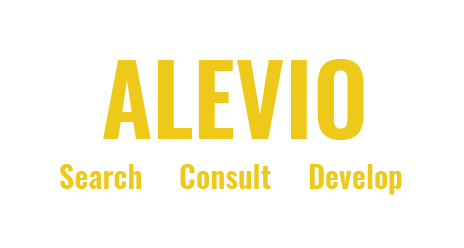Navigating a career transition can be a transformative journey filled with both challenges and opportunities. Whether you’re shifting to a new industry or seeking fresh career paths, adopting effective strategies is crucial for success. By leveraging transferable skills and engaging in purposeful networking for careers, individuals can enhance their adaptability in the workplace and secure rewarding opportunities. This guide will offer new industry tips and insights into professional development, including the pursuit of career certifications and job search strategies. Embrace this change with confidence and optimism, as we explore how to position yourself for long-term success and fulfilment in your new professional venture.

Navigating Career Transitions
Understanding Career Transition Challenges
Transitioning into a new career or industry presents several challenges that can test your resilience and adaptability. One of the primary hurdles is the uncertainty that comes with leaving familiar territory. Additionally, you may face a steep learning curve as you acquire new knowledge and skills relevant to your desired field. Overcoming these obstacles often requires a strategic approach, including thorough research and preparation. Building a robust support network can also play a vital role in mitigating these challenges. Seeking advice from mentors or professionals who have successfully navigated similar transitions can provide valuable insights and encouragement. By understanding and anticipating these challenges, you can develop a proactive plan to address them, thereby enhancing your chances of a successful and fulfilling career transition.

Importance of Adaptability in Workplace
Adaptability in the workplace is a crucial trait for anyone undergoing a career transition. In today’s fast-paced professional environment, change is constant, and the ability to adjust to new circumstances can set you apart. When transitioning to a new industry, you might encounter different work cultures, expectations, and technologies. Being adaptable allows you to embrace these changes with agility, ensuring you remain effective and productive. Moreover, an adaptable mindset can lead to innovation and creative problem-solving, as you are more open to experimenting with new ideas and approaches. Employers value employees who can pivot quickly and maintain performance despite shifting conditions. Cultivating adaptability not only aids in a smooth career transition but also positions you for ongoing success in any future endeavours. By fostering this skill, you can navigate the uncertainties of career transitions with confidence and poise.

Conducting Thorough Industry Research
Thorough industry research is a cornerstone of successful career transitions. Understanding the landscape of your desired field will equip you with the knowledge needed to make informed decisions. Start by identifying key players in the industry and familiarizing yourself with current trends, challenges, and opportunities. Utilize resources such as industry reports, trade publications, and online forums to gather as much information as possible. Attending industry conferences and webinars can also provide valuable insights and networking opportunities. Additionally, consider conducting informational interviews with professionals already working in the field. These conversations can offer a first-hand perspective on what it takes to succeed and help you identify any specific skills or qualifications you may need to acquire. By dedicating time and effort to thorough research, you can navigate your career transition with greater clarity and confidence, ensuring you are well-prepared for the challenges and opportunities ahead.

Leveraging Skills for Success
Identifying Transferable Skills
Identifying transferable skills is essential when shifting careers or industries. These are the skills and experiences that you’ve gained in your previous roles and can be applied effectively in your new career path. Start by listing your core competencies, such as problem-solving, leadership, communication, and project management. Next, consider how these skills can be relevant in your new industry. For example, if you have strong project management skills, you can apply them to manage projects in virtually any industry. Additionally, soft skills like adaptability, teamwork, and critical thinking are universally valued across professions. Highlighting these skills in your resume and during interviews can demonstrate your readiness to take on new challenges. By clearly identifying and articulating your transferable skills, you can bridge the gap between your past experiences and your future career goals, making a compelling case for why you are a strong candidate for your desired role.
Networking for Career Opportunities
Networking for career opportunities is a vital strategy for anyone making a career transition. Building a strong professional network can open doors to new opportunities and provide valuable insights and support during your transition. Begin by reaching out to former colleagues, mentors, and industry professionals to inform them of your career goals and seek their guidance. Attend industry events, conferences, and workshops to meet new contacts and expand your network. Online platforms, such as LinkedIn, are also powerful tools for connecting with professionals in your desired field. When networking, focus on building genuine relationships rather than solely seeking job opportunities. Ask questions, show interest in others’ work, and offer your assistance where possible. By nurturing these connections, you can gain access to hidden job markets, receive referrals, and stay informed about industry trends. Effective networking can significantly enhance your career transition journey and position you for success in your new professional path.

Professional Development and Training
Professional development and training are crucial components of a successful career transition. Investing in career certifications and relevant training programs can enhance your credibility and demonstrate your commitment to your new field. Start by identifying the skills and qualifications that are in demand in your desired industry. Enrol in courses, workshops, or online programs that can help you acquire these skills. Many industries also offer certification programs that can serve as a testament to your expertise and dedication. Additionally, consider joining professional associations or groups related to your new career path. These organizations often provide access to valuable resources, networking opportunities, and continuing education programs. Staying current with industry trends and advancements through ongoing training can also help you remain competitive in the job market. By prioritizing professional development, you can build a solid foundation of knowledge and skills, positioning yourself for long-term success in your new career.

Building a Strong Foundation
Career Certifications for Credibility
Career certifications are a powerful way to enhance your credibility during a career transition. They signal to potential employers that you possess specialized knowledge and a commitment to professional growth. Certifications can provide a competitive edge by validating your skills and expertise in a specific area. Start by researching which certifications are highly regarded in your new industry. For instance, certifications like PMP (Project Management Professional) are widely recognized and can be beneficial in various fields. Enrolling in certification programs often involves a mix of coursework, exams, and practical experiences, all designed to prepare you thoroughly. Additionally, certifications can offer networking opportunities with peers and industry leaders, further expanding your professional connections. By obtaining relevant certifications, you not only boost your resume but also gain confidence in your ability to succeed in your new career. This strategic investment in your professional credibility can open doors to new opportunities and career advancements.

Job Search Strategies for New Industry
Job search strategies tailored to a new industry can significantly enhance your chances of success in a career transition. Start by tailoring your resume and cover letter to highlight your transferable skills and relevant experiences. Clearly articulate how your background aligns with the demands of the new industry. Leverage online job boards, industry-specific websites, and company career pages to find relevant opportunities. Networking remains a crucial component; inform your professional connections about your career transition and seek introductions to key players in your desired field. Attend industry events and job fairs to meet potential employers face-to-face. Additionally, consider working with a career coach or mentor who specializes in your target industry for personalized advice and support. Staying proactive and open to feedback can help you refine your approach and increase your chances of landing a role in your new field. By implementing these targeted job search strategies, you can successfully navigate the competitive job market and secure rewarding opportunities.

Maintaining a Positive Mindset
Maintaining a positive mindset is crucial during a career transition, as this period can be fraught with uncertainty and challenges. A positive outlook can help you stay motivated and resilient, even when faced with setbacks. Start by setting realistic goals and celebrating small milestones along the way. This approach helps maintain momentum and provides a sense of achievement. Surround yourself with supportive individuals who encourage and uplift you. Engage in activities that reduce stress and promote well-being, such as exercise, mindfulness, or pursuing hobbies. Remind yourself of past successes and transferable skills that can aid in your new career. Embrace change as an opportunity for growth rather than a source of fear. By focusing on positive outcomes and maintaining an open mind, you can navigate the transition with confidence and adaptability. A positive mindset not only enhances your personal well-being but also makes you more attractive to potential employers who value resilience and enthusiasm.


